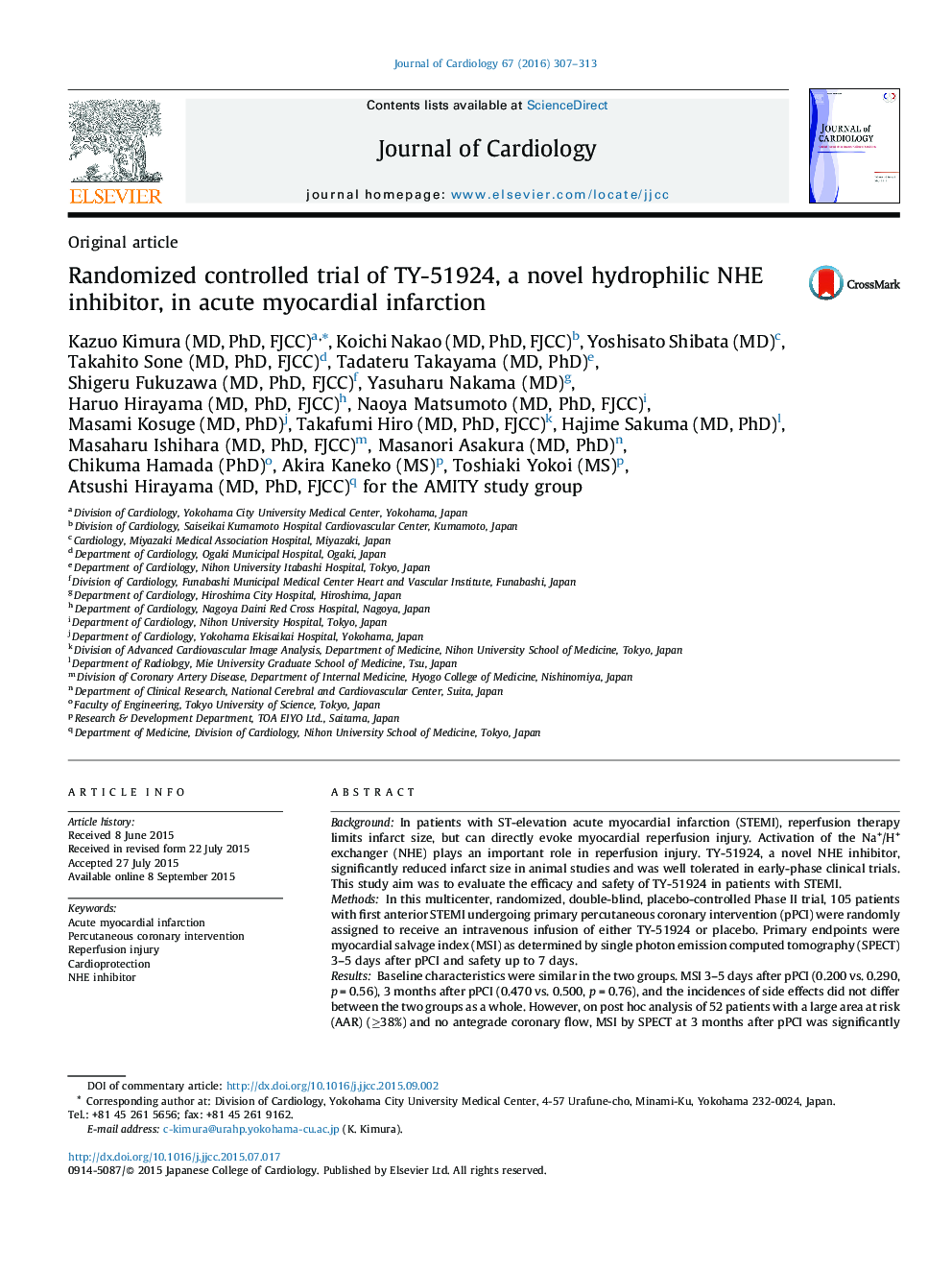| Article ID | Journal | Published Year | Pages | File Type |
|---|---|---|---|---|
| 2962856 | Journal of Cardiology | 2016 | 7 Pages |
BackgroundIn patients with ST-elevation acute myocardial infarction (STEMI), reperfusion therapy limits infarct size, but can directly evoke myocardial reperfusion injury. Activation of the Na+/H+ exchanger (NHE) plays an important role in reperfusion injury. TY-51924, a novel NHE inhibitor, significantly reduced infarct size in animal studies and was well tolerated in early-phase clinical trials. This study aim was to evaluate the efficacy and safety of TY-51924 in patients with STEMI.MethodsIn this multicenter, randomized, double-blind, placebo-controlled Phase II trial, 105 patients with first anterior STEMI undergoing primary percutaneous coronary intervention (pPCI) were randomly assigned to receive an intravenous infusion of either TY-51924 or placebo. Primary endpoints were myocardial salvage index (MSI) as determined by single photon emission computed tomography (SPECT) 3–5 days after pPCI and safety up to 7 days.ResultsBaseline characteristics were similar in the two groups. MSI 3–5 days after pPCI (0.200 vs. 0.290, p = 0.56), 3 months after pPCI (0.470 vs. 0.500, p = 0.76), and the incidences of side effects did not differ between the two groups as a whole. However, on post hoc analysis of 52 patients with a large area at risk (AAR) (≥38%) and no antegrade coronary flow, MSI by SPECT at 3 months after pPCI was significantly higher in TY-51924 group (0.450 vs. 0.320, p = 0.03). TY-51924 did not adversely influence hemodynamics.ConclusionsTY-51924 did not improve MSI or increase side effects as a whole. However, TY-51924 is potentially cardioprotective in the presence of a large AAR and no antegrade coronary flow.
